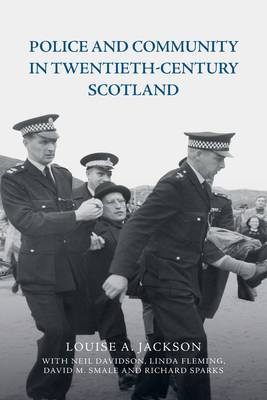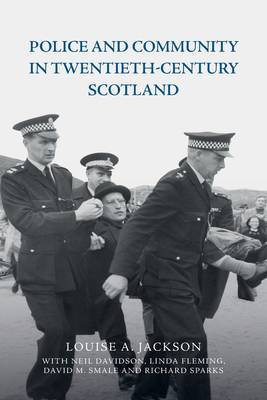
- Retrait gratuit dans votre magasin Club
- 7.000.000 titres dans notre catalogue
- Payer en toute sécurité
- Toujours un magasin près de chez vous
- Retrait gratuit dans votre magasin Club
- 7.000.000 titres dans notre catalogue
- Payer en toute sécurité
- Toujours un magasin près de chez vous
Police and Community in Twentieth-Century Scotland
Louise A Jackson, Neil Davidson, Linda Fleming, David M Smale, Richard SparksDescription
The first social history of Scottish policing from 1900 to the present day
This book will be the first to provide a much-needed history of the experience of policing in twentieth-century Scotland. Drawing on a wealth of archival materials, oral history interviews, memoir and autobiography, it examines the relationship between police officers and the diverse urban/rural communities they served against the backdrop of social and economic change, the ruptures of wartime, the impact of technology and the centralisation of governance. Through its analysis of the dynamics that created points of trust and co-operation as well as tension and conflict across time - with particular reference to gender, age, ethnicity and religion - it will contribute to broader current debates (outside of Scotland as well as within) about the significance of localism in assuring police legitimacy and delivering an effective service. Thus, it will also be the first book to offer a sustained historical analysis of the changing configuration of police-community relationships - from Victorian legacy to present day - highlighting patterns of chronological change as well as geographical variation.
Key features
Based on rich collection of previously unused primary source materials;
Provides geographical coverage of rural areas (including highlands and islands) as well as densely populated urban areas;
Focuses on social identities and the dynamics shaping police-community relationships across time in order to contribute to debates about effective policing today;
Contextualises Scottish experience in relation to broader comparative frameworks.
Spécifications
Parties prenantes
- Auteur(s) :
- Editeur:
Contenu
- Nombre de pages :
- 248
- Langue:
- Anglais
Caractéristiques
- EAN:
- 9781474446648
- Date de parution :
- 30-05-22
- Format:
- Livre broché
- Format numérique:
- Trade paperback (VS)
- Dimensions :
- 156 mm x 234 mm
- Poids :
- 367 g







